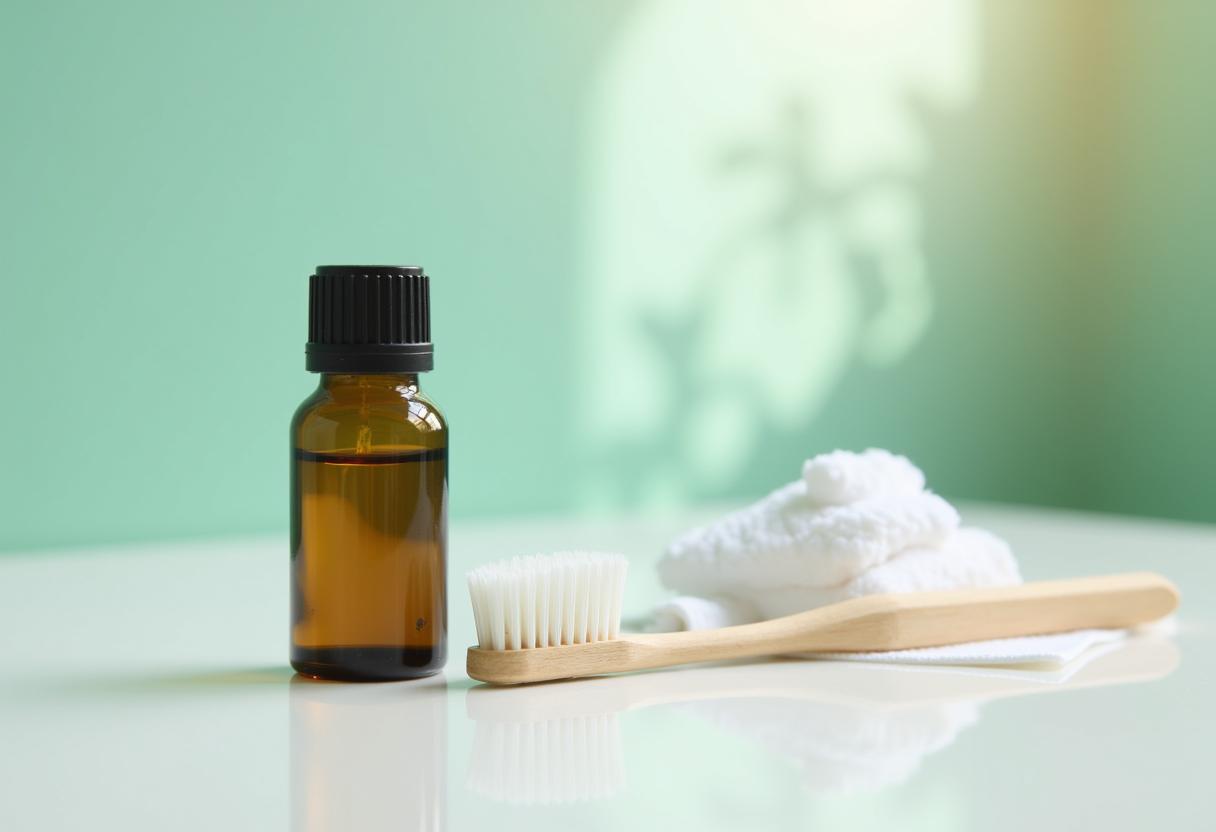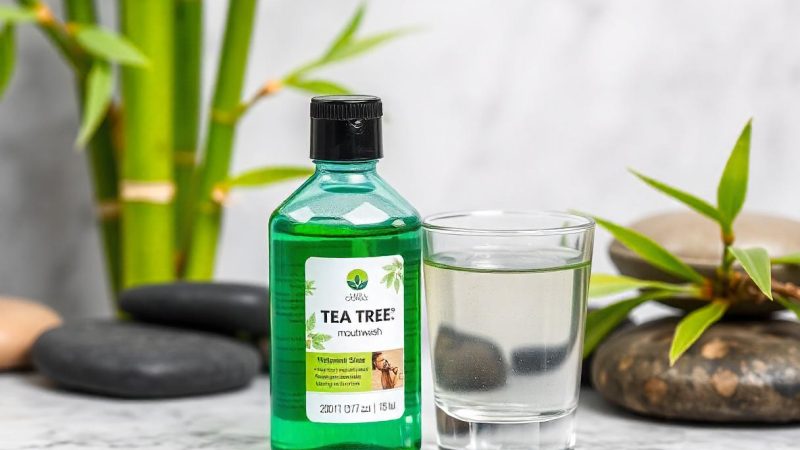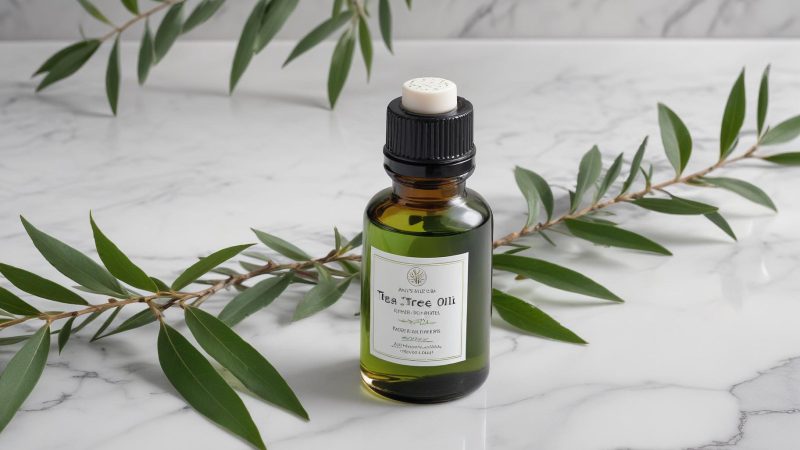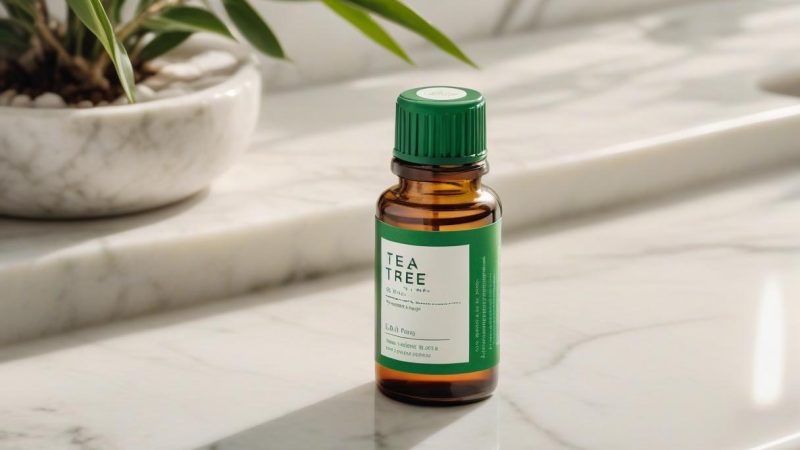The Ultimate Benefits of Tea Tree Oil for Your Teeth and How to Use It

Tea tree oil, an essential oil derived from the leaves of the Melaleuca alternifolia tree, is renowned for its numerous health benefits, including its role in oral hygiene. With its potent antimicrobial, antifungal, and anti-inflammatory properties, tea tree oil offers a natural alternative to conventional oral care products. Here’s a comprehensive look at the benefits of tea tree oil for your teeth and how to incorporate it into your oral hygiene routine.
1. Fights Oral Bacteria
Tea tree oil is known for its powerful antimicrobial properties, which help combat bacteria in the mouth. Oral bacteria can lead to issues such as bad breath, plaque buildup, and gum disease. The main compound in tea tree oil, terpinen-4-ol, has been shown to inhibit the growth of harmful bacteria that cause these problems.
A study published in Clinical Microbiology Reviews highlighted tea tree oil’s effectiveness against a range of oral bacteria, including those associated with dental plaque and gingivitis. By disrupting bacterial cell membranes, tea tree oil helps to maintain oral health and prevent bacterial infections.
How to Use:
- Mouth Rinse: Add 1-2 drops of tea tree oil to a cup of warm water and use it as a mouth rinse. Swish for 30 seconds to 1 minute, then spit out. This can help reduce oral bacteria and freshen breath.
- Toothpaste: Mix a drop or two of tea tree oil into your regular toothpaste before brushing. This will enhance its antibacterial effects.
2. Reduces Gum Inflammation
Gum inflammation, or gingivitis, is often caused by the accumulation of plaque and bacteria. Tea tree oil’s anti-inflammatory properties can help reduce swelling, redness, and discomfort associated with inflamed gums. The oil helps soothe the gum tissue and promotes overall gum health.
A study published in the Australian Dental Journal found that tea tree oil significantly reduced gingival inflammation and bleeding in patients with gingivitis when used as part of a mouthwash.
How to Use:
- Mouth Rinse: Mix 1 drop of tea tree oil with a teaspoon of carrier oil (like coconut oil) and dilute in a small amount of water. Rinse with this solution to help reduce gum inflammation.
- Gum Massage: Dilute tea tree oil with a carrier oil and gently massage it into the gums to soothe inflammation.
3. Combats Bad Breath
Bad breath, or halitosis, can be caused by the buildup of bacteria in the mouth. Tea tree oil’s antimicrobial properties help to eliminate the bacteria responsible for unpleasant odors, leading to fresher breath. Unlike some commercial mouthwashes that contain alcohol and can dry out the mouth, tea tree oil offers a natural alternative that cleanses without stripping away moisture.
Research in the Journal of Clinical Dentistry has demonstrated tea tree oil’s effectiveness in reducing oral malodor, making it a beneficial addition to your oral hygiene routine.
How to Use:
- Mouth Rinse: Add 1-2 drops of tea tree oil to a cup of warm water and use it as a mouth rinse. This helps to neutralize bad breath-causing bacteria.
- Toothpaste: Incorporate tea tree oil into your toothpaste to help maintain fresh breath throughout the day.
4. Assists in Treating Oral Infections
Tea tree oil’s antifungal and antiviral properties make it effective against various oral infections, including thrush (a fungal infection caused by Candida yeast) and herpes simplex virus infections. The oil helps inhibit the growth of pathogens and supports the healing process of infected tissues.
A study published in Phytotherapy Research showed that tea tree oil’s antifungal properties were effective in treating Candida infections, making it a useful tool for managing oral thrush.
How to Use:
- Mouth Rinse: Dilute 1 drop of tea tree oil in a glass of water and use it as a mouth rinse to help treat oral infections.
- Topical Application: For localized infections, mix tea tree oil with a carrier oil and apply it gently to the affected area.
5. Promotes Overall Oral Health
Regular use of tea tree oil can contribute to overall oral health by reducing plaque buildup, preventing cavities, and maintaining a balanced oral microbiome. Its ability to address multiple aspects of oral hygiene makes it a versatile addition to your daily routine.
A comprehensive review published in BMC Complementary Medicine and Therapies noted that tea tree oil’s diverse therapeutic effects contribute to oral health, making it a beneficial component of preventive dental care.
How to Use:
- Daily Rinse: Incorporate tea tree oil into your daily mouth rinse routine to support overall oral health.
- Brushing: Mix tea tree oil with baking soda or your regular toothpaste to enhance its cleaning and antibacterial properties.
Safety and Precautions
- Dilution: Always dilute tea tree oil with a carrier oil or water before applying it to your mouth or gums to avoid irritation. Tea tree oil is highly concentrated and can cause a burning sensation if used undiluted.
- Patch Test: Perform a patch test on your skin before using tea tree oil to ensure you do not have an allergic reaction.
- Consultation: Consult with your dentist or healthcare provider before incorporating tea tree oil into your oral care routine, especially if you have existing dental conditions or are pregnant.
Final Thoughts
Tea tree oil offers a range of benefits for oral hygiene, including fighting bacteria, reducing gum inflammation, combating bad breath, and assisting in the treatment of oral infections. Its natural, antimicrobial, and anti-inflammatory properties make it a valuable addition to your oral care regimen. By incorporating tea tree oil into your routine, you can support better oral health and maintain a cleaner, fresher mouth.
Sources:
- Hammer, K. A., Carson, C. F., & Riley, T. V. (2006). Antimicrobial Activity of Tea Tree Oil. Clinical Microbiology Reviews.
- Australian Dental Journal. (2001). Effect of Tea Tree Oil Mouthwash on Gingivitis. Australian Dental Journal.
- Journal of Clinical Dentistry. (2005). Tea Tree Oil as an Oral Rinse: Effects on Halitosis.
- Phytotherapy Research. (2011). Antifungal Activity of Tea Tree Oil Against Candida Infections.
- BMC Complementary Medicine and Therapies. (2020). Comprehensive Review of the Health Benefits of Tea Tree Oil.






